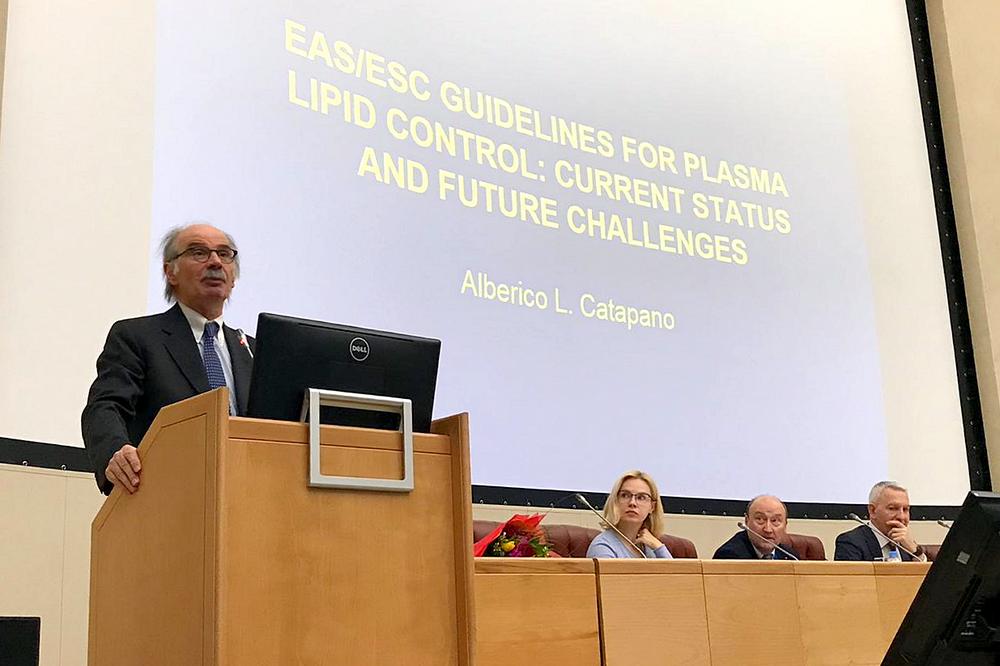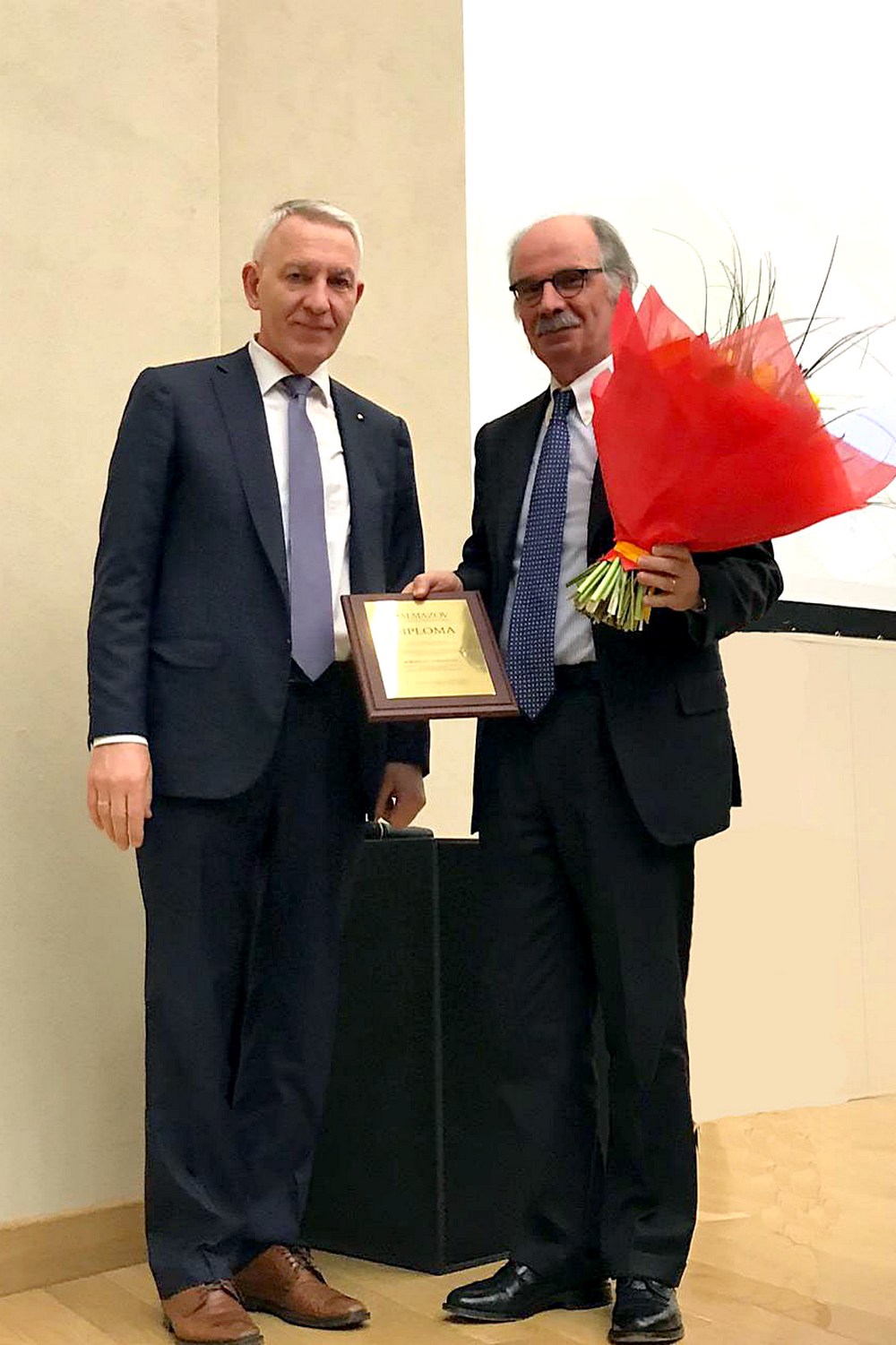 On March 5, Professor Alberico L. Catapano from the University of Milan, Italy was awarded a Visiting Professor title for his contribution to the promotion of international collaboration.
On March 5, Professor Alberico L. Catapano from the University of Milan, Italy was awarded a Visiting Professor title for his contribution to the promotion of international collaboration.
The Academic Council approved the Visiting Professor programme at the end of 2018 to bring to Almazov Centre famous researchers, prominent teachers and recognized experts in various fields from universities and research institutions of Russia and other countries for engaging in research and academic activities.
The first scientist to be awarded with the Visiting Professor title and the corresponding diploma is Alberico L. Catapano, Full Professor of Pharmacology and Director of the Centre of Epidemiology and Preventive Pharmacology of the University of Milan. Last year, Almazov Centre signed the Memorandum of Understanding with the University of Milan in the field of translational medicine, molecular biology and genetics, cardiovascular research, atherosclerosis and lipidology.
Alberico Catapano is also the Director of the Laboratory of Lipoproteins, Immunity and Atherosclerosis and of the Center for the Study of Atherosclerosis at the “Bassini” Hospital, Chairman of the EAS/European Society of Cardiology (ESC) guidelines for the treatment of dyslipoproteinaemias, President of the Italian Society of Clinical and Experimental Therapy (SITeCS), General Director of the SISA Foundation (Italian Society for the Study of Atherosclerosis and the immediate past President of the European Atherosclerosis Society (EAS).
Professor Catapano has authored more than 423 scientific papers in peer-reviewed journals and several books in the area of the atherosclerosis, lipoproteins and lipid metabolism. At the Academic Council meeting, he gave a lecture EAS/ESC Guidelines for Plasma Lipid Control: Current Status and Future Challenges. This topic is highly relevant in terms of the upcoming ESC guidelines in dyslipidaemia management.
The Visiting Professor programme provides for lectures by guest speakers and other forms of their participation such as research, training courses for trainees and Centre's specialists, tutorials and hands-on workshops, diploma and master thesis supervision, etc.

